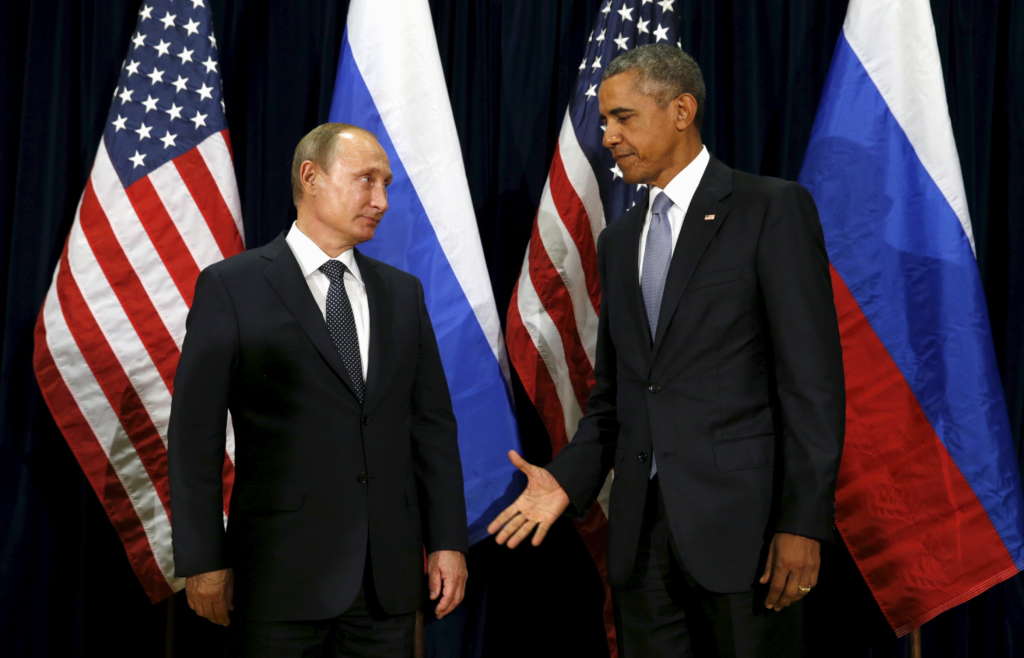Turkey has reiterated that it will never waive its goals in the north of Syria to secure its border and clear it from terrorist organizations like ISIS and members of the Kurdistan Workers’ Party (PKK); it has also insisted on participating in the battle of Mosul to liberate it from the extremists.
In both cases, Turkey has asserted that its participation in the battles only aims at securing the unity of the Syrian, Iraqi, and Turkish territories and to beat any threats coming from its two neighboring countries.
Turkey has also showed readiness to participate in the liberation of Raqqa but stipulated the exclusion of Kurdish forces, a condition that has been refused by Washington. Observers and analysts see that the U.S. presidential elections have obstructed it from making decisive steps, which may push it to kickstart the Mosul battle to cover its failure in Syria.
*Play of Aleppo
Turkish Analyst Dr. Sami Salha sees that both Washington and Moscow have never been serious in their ceasefire agreement on Aleppo, according to which the city’s besieged residents were supposed to receive humanitarian aid; many question marks have been raised concerning the clauses of the agreement, its implementation mechanism, and legal guaranties.
Salha points that Washington has neglected the Turkish plan concerning the Euphrates Shield operation and intended not to discuss it with the Iraqi government considering that any intervention of the Turkish army in Iraq will be an illegitimate operation.
*Crisis of the U.S. equation
During his interview with Asharq Al-Awsat, the Turkish analyst considered that the failure of the Aleppo truce and Washington’s deadlock in making the Euphrates Shield operation successful have pushed it to take another direction by prioritizing the battle of Mosul.
Salha noted that the upcoming visit of the Russian President to Ankara on Monday will be decisive in reaching a Turkish-Russian agreement on the Syrian crisis; the deal is expected to include clauses on the future of Aleppo, the calculations of Washington and Baghdad concerning Mosul, and U.S. attempts to use the Iraqi city’s future as a pressure card to create a certain balance of power in the Syrian and Iraqi files.
*Turkey’s goals
Turkey has certainly set its goals from the operation of Euphrates Shield and sees that circumstances are fit to keep it going; according to sources, Ankara’s rising rhetoric against the Syrian Kurds and the statements made by Turkish officials including the President and the Prime Minister aim at pressing Washington to hold its promise by moving the Kurdish militias east of the Euphrates and excluding them from the expected operation in Raqqa.
The same sources see that Ankara believes that Washington and Moscow will never succeed in reaching an agreement concerning the Syrian war; therefore, it insists on imposing the “security zone” amid a U.S., Russian, and Iranian silence toward this proposal. These sources add that Turkey has carried out serious preparations to nationalize Syrian refugees in this zone.
*Russian movements
On the other hand, Turkish experts point that Russia’s enhanced military presence in Syria over the past days has sent a clear message to Washington to drop the military option in resolving the Syrian crisis.
Massoud Hakki Jashin, a Turkish academic specialized in international relations, said that the Russian movements have aimed at fulfilling Moscow’s will in resuming its old role as in the bipolar world of the cold war.
*Turkey and Iraq
Amid confusion of positions and the Turkish advancement in the Euphrates Shield operation, an Iraqi-Turkish tension has emerged and Baghdad seeks to exclude any Turkish intervention.
Ersat Hurmuzlu, senior advisor to former Turkish President Abdullah Gul, said that his country’s policy is based on supporting the territories’ unity and sovereignty in Iraq and has no regional ambitions in any country in the region; he added that Turkey’s priority is to confront terrorist threats whether they came from ISIS or the Kurdish militias.
Hurmuzlu has also criticized the U.S. position from Turkey and its plans for Iraq, and considered it a violation of ethical rules of the strategic alliance between Ankara and Washington.
*Iranian anxiety
As per Iran, a former MP from the Turkish Justice and Development Party considered that Washington is the first to be blamed for chaos in Syria and Iraq because the U.S. priority in the region has always been the protection of Israel’s security. He added that the Turkey-led Euphrates Shield operation in Iraq has also raised anxiety among Iranians, who have thought that Ankara may launch a similar operation to liberate Mosul from ISIS.
Finally, the former MP sees that the main problem is the Iraqi authorities’ preference to be allied with the U.S. administration rather than a Muslim government like Turkey. Iran should be very careful in this regard, he says.
